You can only take an ILS recertification course if you have already taken an ILS course and your certificate has expired within the last twelve months.
Our recertification course has been designed to reinforce the original learnings of the ILS course.
During the course, you will develop the skills to:
- recognise and treat the deteriorating patient using the ABCDE approach;
- identify the causes and promote the prevention of cardiopulmonary arrest;
- undertake the skills of quality CPR and defibrillation (manual and /or AED) and simple airway manoeuvres;
- utilise non-technical skills to facilitate initial leadership and effective team membership.
Who is the course for?
The ILS course is suitable for doctors, medical students, nurses, nursing students, midwives, paramedics and student paramedics, physiotherapists, dentistry professionals and other health and care professionals. It may also be suitable for fire service technicians, police personnel and prison officers.
The ILS recertification course runs over half a day and takes place in a Resuscitation Council UK Course Centre.
We use our evidence-based guidelines and cutting-edge research to create our courses. Courses are then delivered by members of our dedicated and highly skilled Instructor base. This guarantees that our courses are uniform, and the content remains the same across all our Course Centres.
Pre-course preparation:
Candidates must have a current ILS manual. Candidates are expected to have prepared for the course by reading the manual. Some Centres may send Candidates a multiple-choice question (MCQ) paper to support Candidate learning.
Programme:
The course programme consists of one lecture, a CASDemo, and a series of cardiac arrest and deteriorating patient simulations (CASTeach).
Download the full programme
Assessment and certification:
Assessment is continuous throughout the course and is guided by the assessment forms provided for each core skill. Copies of the assessment forms should be forwarded to the Candidate with their manual.
Successful Candidates will receive a new ILS provider certificate, which is valid for another year.
This course is recognised as continuing professional development (CPD) by the Medical, Dental and Nursing Royal Colleges and Health Care Professional Council. Please contact your registering body for further information.
The first step is to find a Course Centre near you. Below, you’ll find an area where you can search for local courses and find out how to get in touch with the organiser.
Course fees are decided locally by the Course Centre.
If you are a doctor, medical student, nurse, nursing student, midwife, ODP, cardiac technician, resuscitation officer, healthcare provider (such as a physiotherapist, radiographer, occupational therapist), dental nurse, dentist, paramedic/ ambulance technician, healthcare assistant or nursing associates are eligible for this course. It may also be suitable for you if you are a fire service technician, police personnel prison officer or cabin crew.
ALS qualification:
You can recertify by attending one of the following courses:
- two-day ALS course
- e-ALS
- ALS modular course
- one-day ALS recertification course.
You are unable to undertake the one-day ‘ALS recertification’ course if more than one year has passed since your last course certificate expiry date. The ‘ALS recertification’ course is not recommended if you are not practicing the skills within your current job role.
ARNI qualification:
You may recertify by attending the ARNI Provider course.
EPALS qualification:
You may recertify by attending:
- a full EPALS course
- day two of an EPALS course, (please note, your current EPALS certificate must still be in date to recertify on day two of the course)
You may only recertify on day two of the course if your current EPALS certificate is still be in date. If your certificate is not in date, you will need to attend the one-day course.
NLS qualification:
You may recertify by attending the NLS Provider course.
ILS qualification:
You may recertify by attending the:
- one-day ILS course
- half-day ILS recertification course
You may only attend the half-day recertification course if it is within one year of the expiry date of your most recent ILS certificate. If more than two years have passed since the date of your last ILS certificate, you will need to attend the one-day course.
PILS qualification:
You may recertify by attending the:
- one-day PILS course
- half-day PILS recertification course.
You may only attend the half-day recertification course if it is within one year of the expiry date of your most recent PILS certificate. If more than two years have passed since the date of your last PILS certificate, you will need to attend the one-day course.
ALS, ARNI, EPALS, NLS, ILS, PILS qualifications:
You have one year from the expiry date of your course certificate, which you can recertify your qualification.
For more FAQs visit our online support system
Course Availability
You can book one of the many courses in the UK shown in the list below by contacting the Course Centre organiser. The cost for a Candidate place will vary based on the Course Centre.
| Course centre town | Course centre | Organiser |
|---|---|---|
| Ashton-Under-Lyne | Tameside and Glossop Integrated Care NHS FT |
Course Administrator resus@tgh.nhs.uk |
| Aylesbury | Buckinghamshire Healthcare NHS Trust |
Course Organiser bht.resuscitation.training@nhs.net |
| Aylesbury | NES Healthcare UK |
Course Admin training@neshealthcare.co.uk |
| Barnsley | Barnsley Hospital |
Course Admin bhnft.resuscitation@nhs.net |
| Belfast | Belfast Health & Social Care Trust |
Course Administrator resuscitation.services@belfasttrust.hscni.net |
